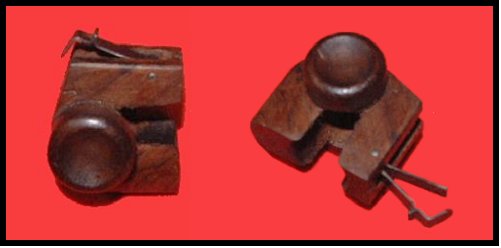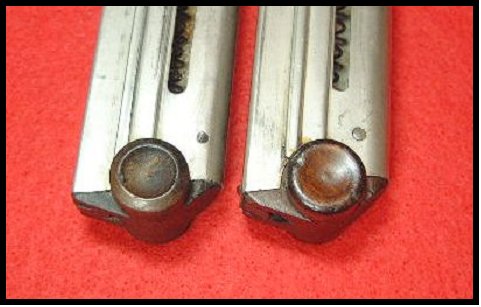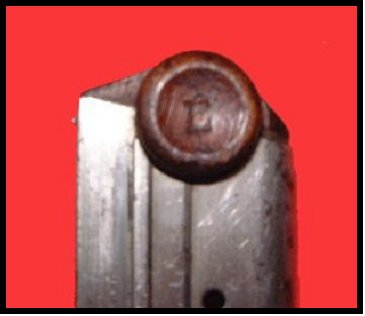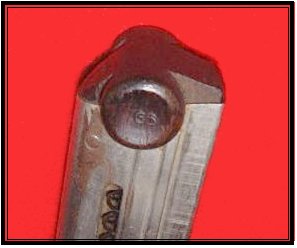
upload photo | donate | calendar
 |
my profile |
register |
faq |
search upload photo | donate | calendar |
|
|
#1 |
|
Moderator
2010 LugerForum Patron Join Date: Jun 2002
Location: Santa Teresa New Mexico just outside of the West Texas town of El Paso
Posts: 7,019
Thanks: 1,090
Thanked 5,173 Times in 1,701 Posts
|
â??The Dutch Lugerâ? by Bas Martens and Guus de Vries is a great book and covers the topic better than any other publication to date. It also has a wealth of information on other early automatics and the Dutch Trials. I highly recommend it for your library, but for those of you that do not have it and have a passing interest in Dutch Lugers here is some information and a few photos of the hard to find Dutch Luger magazines.
The Dutch attempted to overcome the problem of dirt and debris causing the magazine to function improperly. This was particularly of interest because of the harsh tropical conditions of the Dutch East Indies where the Lugers were employed. To facilitate cleaning, the magazines were fitted with a unique wood base with a spring latch that permitted removal of the magazine base and main spring to clean the interior of the magazine. This seemed like a good idea, but in actual practice the spring latch frequently became weak allowing the base and mainspring to fall out of the magazine while firingâ?¦not a good situation in a serious encounter. To correct this problem, the magazines subsequently were modified by pinning the base to the magazine body (more on that later). Consequently, original unmodified Dutch magazines are one of the more difficult magazines to acquire, and considering the tropical environment pristine examples are really scarce. The following photo shows a couple of unmodified examples. The inset shows the spring latch in the wood base:  The base is fairly complex and is an exercise in woodworking! The spring latch is fitted into a recess in the base and pinned in place as the next photo shows:  The modification to pin the base to the magazine body apparently was performed at arsenal or depot level since usually the pins are nicely placed and finished flush with the body (unit armorers probably also performed the modification when needed since some magazines are not so nicely finished). The following photo shows two probable arsenal modified magazines. Note the variation in the size and placement of the pins:  Most magazines were unmarked. However, one of the exceptions is the seldom encountered magazine with an â??Eâ? stamped on both sides of the wood base in the finger recesses. According to Martens and de Vries, this stood for â??exercitieâ? or â??exerciseâ?Â. They were not intended for shooting but were used as training devices to practice loading the magazine with dummy rounds. (They function just like regular magazines, so they can be loaded with live rounds just as well):  The Dutch â??Geweermakers Schoolâ? was initially set up to train armorers, but eventually also functioned as the East Indies Small Arms Arsenal. Parts made, repaired or reworked by the Arsenal will usually be marked with a â??GSâ? stamp. This last photo shows a GS made and marked wood magazine base. From the crudeness of the installation, it is likely it was performed by a unit armorer in the field. Notice that the spring latch has been totally eliminated and the base is retained only by a single pin (which continues the practice of placing it at the front of the magazine rather than at the rear like the usual German made magazines): 
__________________
If it's made after 1918...it's a reproduction |
|
|
| The following 5 members says Thank You to Ron Wood for your post: |
|
|